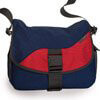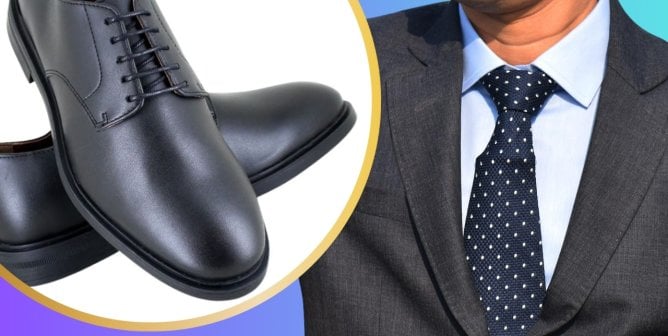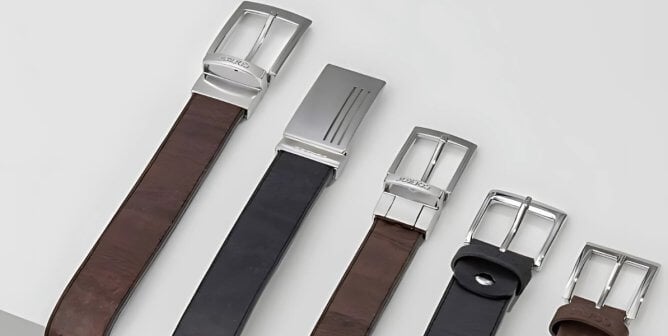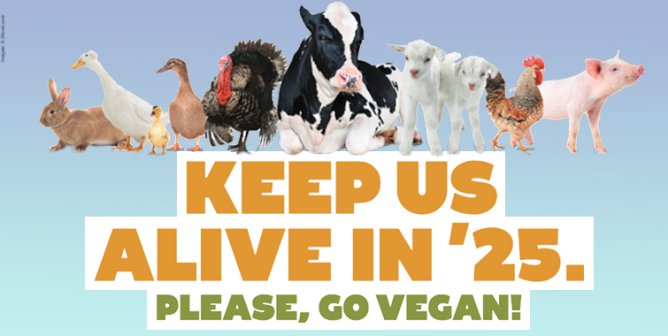What’s Wrong With Leather?
Millions of cows, pigs, sheep, and goats are slaughtered for their skin every year. They are castrated, branded, and dehorned and have their tails docked—all without anesthetics. Then they are trucked to slaughter, bled to death, and skinned. Leather is not simply a slaughterhouse byproduct—it’s a booming industry. The meat industry relies on skin sales to stay in business because the skin represents the most economically important byproduct of the meat-packing industry, according to the U.S. Department of Agriculture.
Animal skin is turned into finished leather through the use of dangerous mineral salts, formaldehyde, coal-tar derivatives, cyanide-based oils and dyes, chrome, and other toxins.
People who have worked in and lived near tanneries are dying of cancer caused by exposure to toxic chemicals used to process and dye the leather. A study conducted by the Centers for Disease Control and Prevention reported that a solvent used in tanning leather appears to be associated with an increased risk of testicular cancer.
When you buy leather products, you may be purchasing leather from Asian dog and cat tanneries; because product labeling rarely indicates where the skins originate, there’s no way to know for sure.
What’s Wrong With Wool?
Shearing sheep involves more than just a haircut. Sheep need the wool that they naturally produce to protect themselves from temperature extremes.
Because shearers are usually paid by volume rather than by the hour, they often work too fast and disregard the animals’ welfare. Sheep are routinely punched, kicked, and cut during the shearing process.
Much of the world’s wool comes from Australia, where tens of millions of sheep each year undergo “mulesing,” a gruesome procedure in which shears are used to cut dinner-plate-sized chunks of skin and flesh from the backsides of live animals—often without anesthetics.
Millions of sheep raised for wool in Australia are shipped to the Middle East and North Africa for slaughter. These animals are placed on extremely crowded, disease-ridden ships with little access to food or water for weeks. During their grueling journeys, they suffer through weather extremes, and temperatures on the ships can exceed 100°F. Many fall ill when they become stuck in feces and are unable to move, and many others are smothered or trampled to death by other sheep.
Intensive sheep farming, especially in Australia, is responsible for the degradation of natural waterways and land habitats and for the emission of greenhouse gasses, such as methane, into the atmosphere.
When you buy wool products, it is likely that you are buying wool from sheep who were raised in Australia, and because most wool is routed through China for processing, product labeling rarely indicates where the wool originated.
What’s Wrong With Silk?
Silk is the fiber that silkworms weave to make cocoons. To obtain silk, worms are steamed or gassed alive in their cocoons by manufacturers.
Humane alternatives to silk include nylon, milkweed seed-pod fibers, silk-cotton tree and ceiba tree filaments, and rayon.
What’s Wrong With Down?
Down—which is used to fill some comforters, pillows, parkas, and other products—is the soft layer of feathers closest to birds’ skin.
Down is plucked from geese and ducks either while they are alive or after slaughter. Many geese used for down are held down by workers who tear out the birds’ feathers while the animals shriek in pain and terror. This process is repeated multiple times throughout the birds’ lives. Birds are often plucked so hard that their skin rips open, leaving gaping wounds that workers crudely stitch back together in the same unsterile environment in which the birds were plucked. All this is done without any anesthetics. “Live plucking of geese or ducks can never be done humanely,” writes bird welfare expert Dr. Laurie Siperstein-Cook, D.V.M.
Many of the birds who are used for down are also used for foie gras (French for “fatty liver”). Foie gras is produced by cramming a tube down birds’ throats and force-feeding them until their livers become diseased and swell to up to 10 times their normal size.
Down is expensive and loses its insulating ability when wet. The insulating capabilities of cruelty-free synthetic fillers such as PrimaLoft and Thinsulate persist in all weather conditions.
Shopping Tips
Whether you’re trying on pleather pumps at Payless or digging through Nordstrom’s racks for faux shearling, synthetic alternatives are easy to find and often clearly labeled. Forget about out-of-the-way specialty shops. From discount department stores such as Target and T.J. Maxx to hip boutiques such as Diesel and Paul Frank and everything in between (think Linens ‘n Things, JCPenney, and even Victoria’s Secret), mainstream stores have become a mecca for compassionate shoppers.
Here are some general tips when shopping for alternatives to the following:
Leather
Look under shoe tongues, on tags, and on the insides of belts and bags for fake leather buzzwords such as “manmade leather,” “all-manmade materials,” “pleather,” and “synthetic.” No label or unsure? Ask a salesperson if it is “real” leather. Finally, the price may clue you in. Typically, synthetic leather sells at a fraction of the price of real leather!
Hint: You’ll find a continually changing stock of synthetic shoes if you drop into shoe warehouses and designer discount stores such as Off Broadway Shoes, DSW, and Marshalls. It is just as easy to steer clear of skins at upscale department stores such as Macy’s and Saks Fifth Avenue, with most trendy and high-end lines, including Chinese Laundry, Kenneth Cole, Nine West, and Kate Spade, featuring pleather footwear and accessories.
Wool, Etc.
Watch out for wool hiding in pants and suits (read labels!), and take a pass on pashmina, angora, cashmere, shearling, camel hair, and mohair too—all made from animals. Instead, look for snuggly warm synthetic fabrics such as polyester fleece, acrylic, and cotton flannel—they wash easily, keep their bright colors, cost less, and don’t contribute to cruelty.
Heavy, bulky wool can’t hold a candle to revolutionary new fabrics such as GORE-TEX, Polartec Wind Pro, Thermolite, and Thinsulate. Polartec Wind Pro is made primarily from recycled plastic soda bottles and has four times the wind resistance of wool. It also wicks away moisture and is available at Patagonia and other outdoor outfitters.
Tencel, a natural fabric made from wood pulp, is a breathable, durable, and biodegradable alternative to wool for men’s and women’s dress suits. If you’re looking for a suit, start shopping in the spring, when summer suits made from cotton, viscose, and other lighter materials are available from retailers such as 99X, TravelSmith, Pangea, and others.
For nonwool tuxedos, try eTuxedo.com or CheapTux.com.
Silk
Find humane alternatives to silk ties and other silk items—including fabrics such as nylon, polyester, rayon, Tencel, milkweed seed-pod fibers, and even silk-cotton tree and ceiba tree filaments—online and in stores for a fraction of the price of silk.
Down
Down-free coats, sleeping bags, comforters, pillows, and more can be found virtually anywhere, including at Eddie Bauer, The Company Store, and Bed Bath & Beyond. Read labels and look for the words “synthetic down,” “down alternative,” or “polyester fill.” Also look for items made from high-tech fabrics such as PrimaLoft or Thinsulate—both of which are soft, washable, downlike materials that are often used in coats, gloves, and comforters and that stay warm even when wet (unlike down).
Fur
Forget about fur accessories and coats with fur collars and fur trim. Again, read labels to weed out cruelly produced products. Cruelty-free faux furs made of plush, modern synthetics are becoming easier and easier to find. Fabulous Furs sells elegant, stylish coats that are completely faux. Many other designers and manufacturers—including Charly Calder, Faux, Purrfect Fur, and Sweet Herb—specialize in fabulous faux furs as well.
Buying cruelty-free shoes, belts, wallets, bags, sweaters, and jackets has never been easier. This guide is divided into the following sections:
• Vegan Companies
• Leather and Fur Alternatives
• Search by Product Type
• Animal-Friendly Companies Wanted
Text VEG to 73822 to get the latest vegan lifestyle tips, recipes, and urgent action alerts texted right to your phone.
Terms for automated texts/calls from PETA: https://peta.vg/txt. Text STOP to end, HELP for more info. Msg/data rates may apply. U.S. only.







